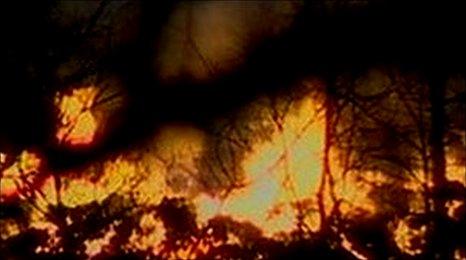Foot-and-mouth disease: Reporter Gilbert John reflects on the 2001 outbreak
- Published
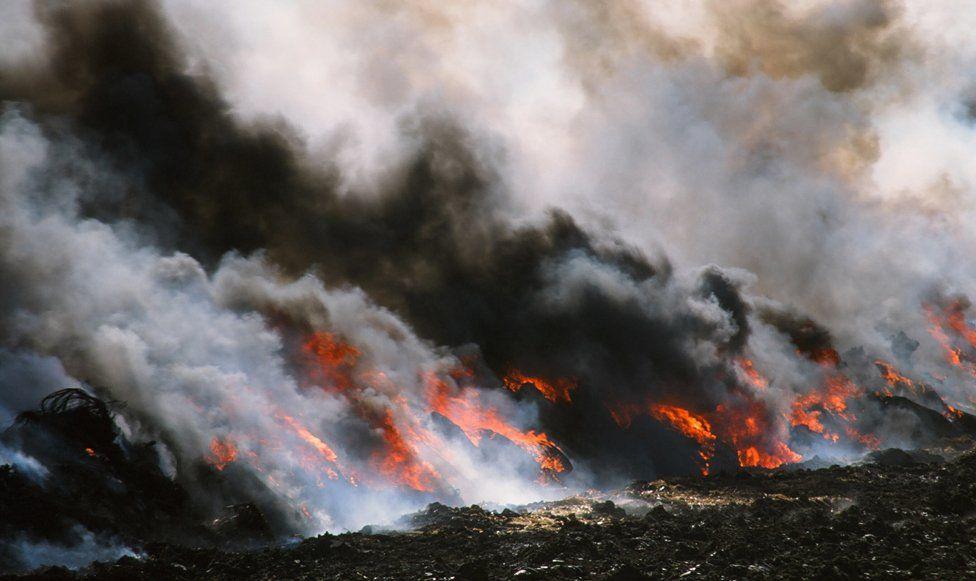
Animals were killed even if they had not tested positive for the disease
It is 20 years since foot-and-mouth disease ravaged the countryside for seven months. It led to six million animals being culled across the UK, costing the taxpayer £3bn.
In Wales, more than a million animals were destroyed, with the Army called in to help.
BBC Wales' Gilbert John was among those who reported on the crisis, with his coverage affecting the official response.
Here, he reflects on the outbreak of the highly infectious disease, which mainly affected cattle, pigs, sheep and goats, and plunged the agricultural industry into chaos.
It was the distant pillars of smoke from hillside and valley as I drove through mid Wales which brought home the extent of the foot-and-mouth impact.
Each pillar represented scores of animals killed and their carcasses burned in an attempt to prevent further spread of the disease.
Each one a mini-version of the huge fire pits on the Epynt mountain near Sennybridge where tens of thousands of cattle were hauled, dumped and burned, leaving hot ash so thick it took months to cool.
Controversial because it was argued simply carrying them from further afield was a risk. Worrying because the water table could be contaminated.
And photographs of the piled animals in black silhouette against the flame became a symbol of the carnage.
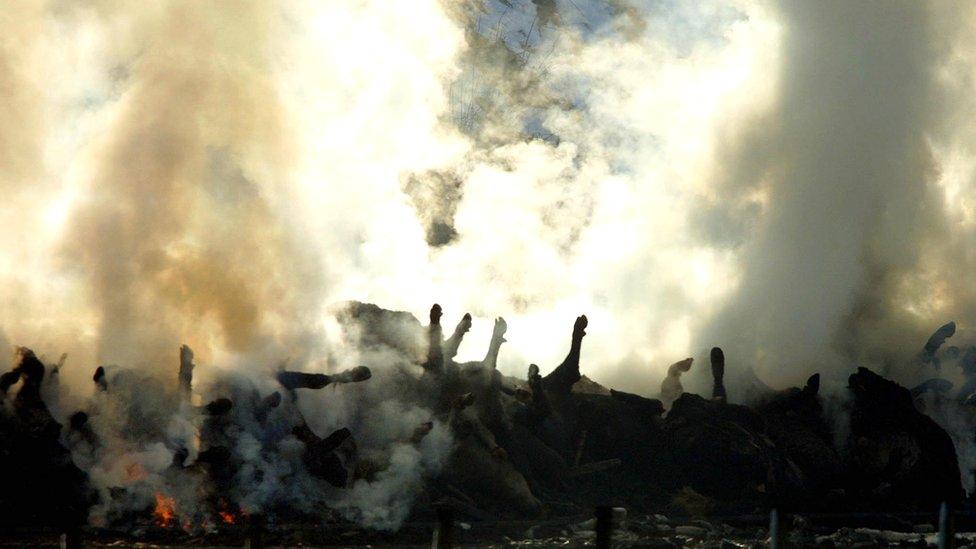
The animals' carcasses were burned in an attempt to stop further spread of infection
Lorry breach
I was woken one Sunday morning by a phone call from farmers north of Llandovery in Carmarthenshire - alarmed because they had found a frightening breach of restrictions.
There on an A40 lay-by north of town stood a lorry dripping pink liquid. To me it looked like blood.
Later I was told it might have been disinfectant, but this was clearly a lorry which was travelling empty from the Epynt - potentially carrying foot-and-mouth into the huge disease-free dairy fields of south- west Wales, taking a shortcut on a route banned for such lorries.
My broadcast, I understand, led to swift action.
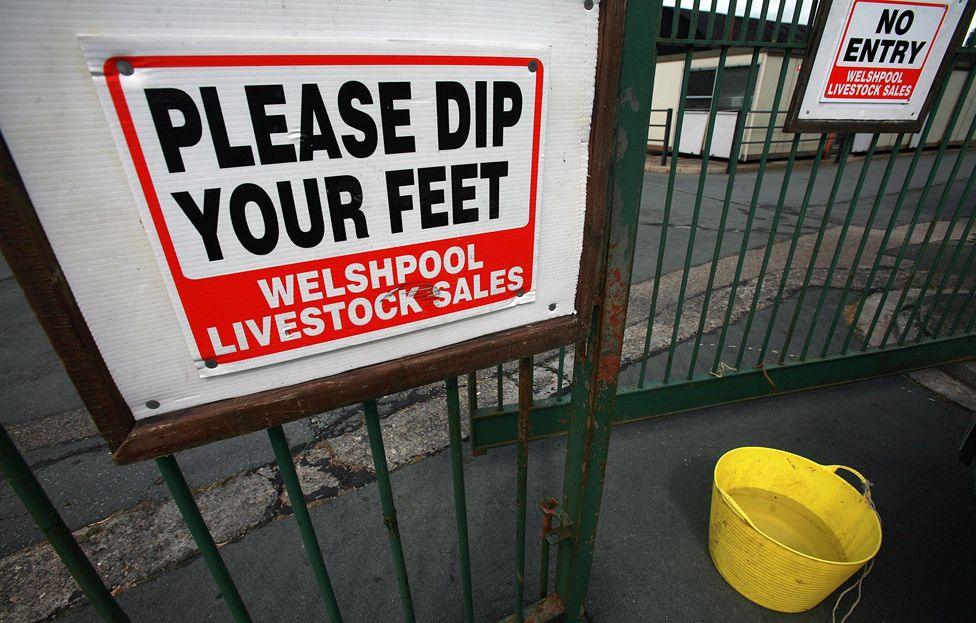
Attempts were made to disinfect areas and lock gates
It was a time of wellies and disinfectant at the farm gate and grim moments like standing in an empty milking parlour near Brecon with a farmer.
He was finding it hard to speak. He had known every one of his dairy cattle by name. Known them since birth and he had stood and watched them shot, one by one, and their carcasses hauled away.
All were healthy. None had the disease, but an animal in an adjoining field had tested positive.
Some farmers tried locking and barring their gates but they were futile gestures.
We had no Royal Welsh Show at Llanelwedd in Powys. A rugby international was postponed and walkers and tourists were banned, so tourist businesses closed.
Empty mountains
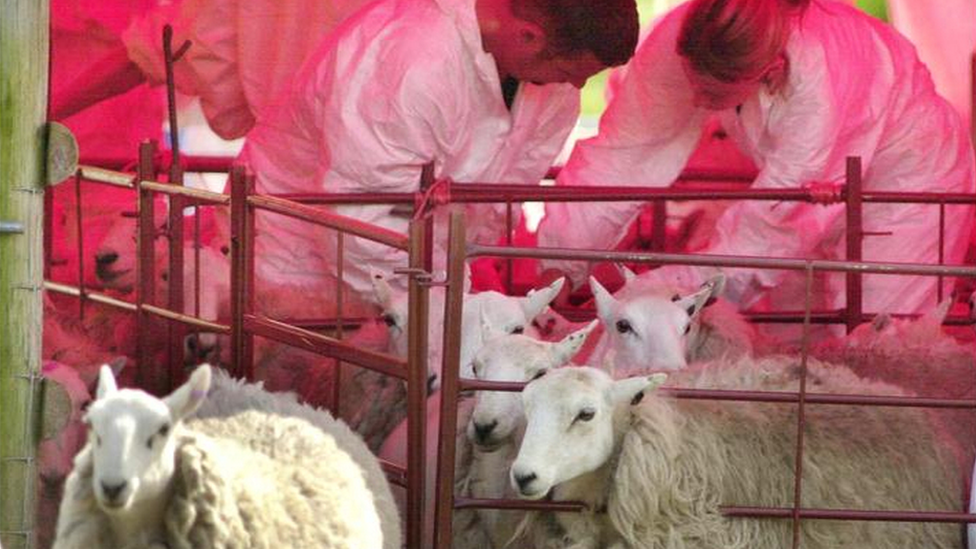
Sheep in the Brecon Beacons were tested in an effort to control the spread
I learned a new word - hefted - linked with sheep whose flocks had grazed the mountains for so many generations they knew exactly where their farm's common land boundaries lay, without fences, and grazed to that point. It was a word I heard the Prince of Wales use during a visit.
Now the hills were bare of hefted sheep. How would any new replacement sheep become hefted with no older sheep to show them?
I remember stopping at Libanus, near Brecon, by the bus stop and a roadside bench where two elderly women were sitting and looking up at the vast spread of the mountainside before them.
They were dabbing the tears from their eyes.
They had never seen the mountains empty of sheep before.
"Will they ever come back?" they asked me.
- Published19 February 2011
- Published10 February 2012
- Published18 February 2011
